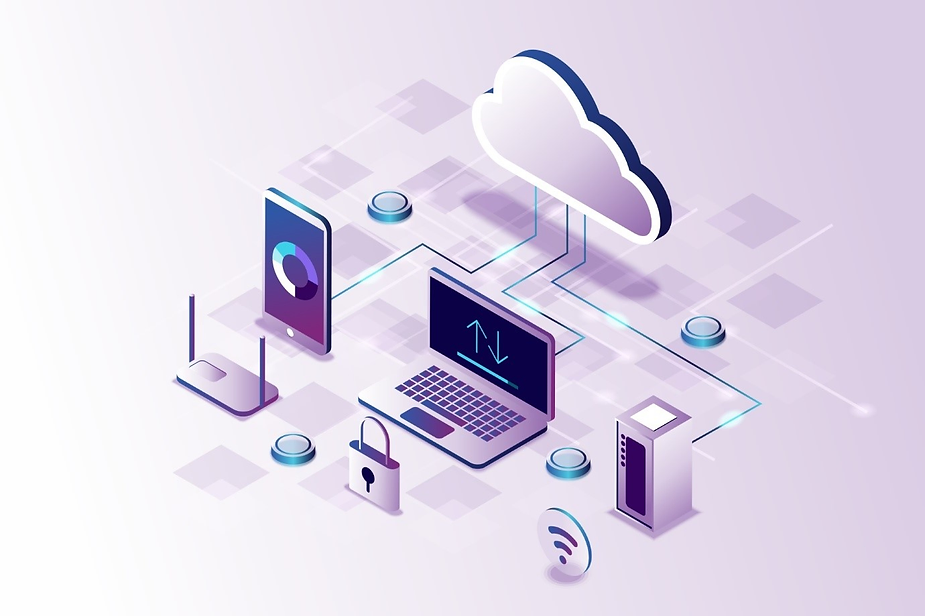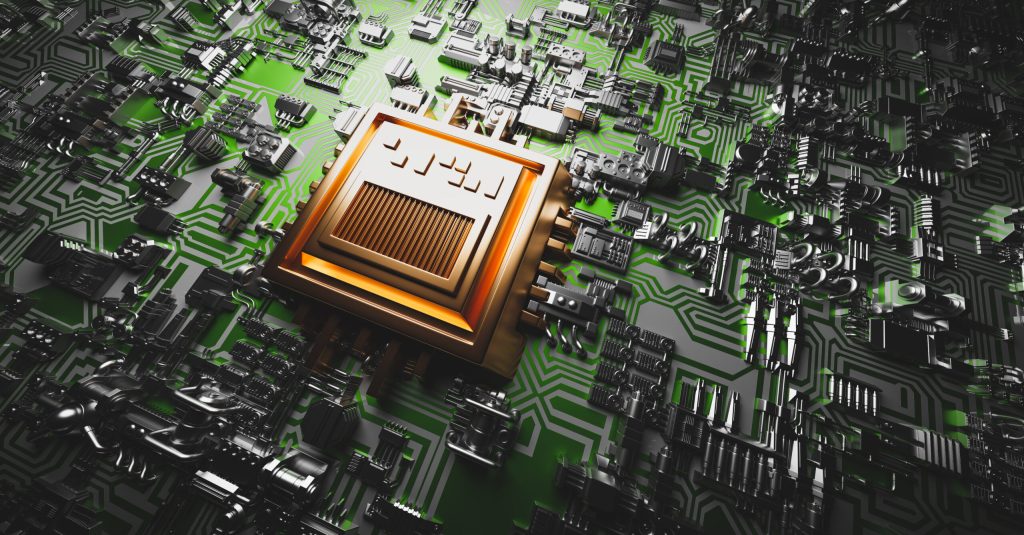Well, if you ask me, if the computing power has established its place in the digital era?
My answer would be yes!
With the advancements in computing power (the ability of a computer to carry out tasks more efficiently), there has been a widespread adoption of digital technologies in various fields, from business & healthcare to entertainment and education.
Computing power will remain a vital source of innovation and progress in the years to come and it would become impossible to imagine the digital era without it!
It has revolutionized the way we work, communicate, learn, and entertain ourselves and has enabled us to process and analyse vast amounts of data, run complex simulations and models, create sophisticated artificial intelligence, and machine learning algorithms, and support the Internet of Things.
As a digital transformation professional, I truly believe that this is a revolution, and it has become an essential component of the digital World.
It has transformed the way we interact with technology and the world around us.
Moreover, computing power has made it possible for individuals, businesses, and governments to store, process, and access vast amounts of data in real-time, from anywhere in the world, on a range of devices, from smartphones to supercomputers. Isn’t that cool?

It has also established its place in the digital era, and its continued growth and development will undoubtedly have a significant impact in our society and the world.
Advances in the field of computer hardware has made it possible to create more powerful processors, higher-speed memory, and larger storage devices, which can handle more data and perform more complex calculations at faster speeds.
This has allowed for the creation of more sophisticated software that can handle more complex tasks and operate in real-time.
For example, the development of cloud computing and distributed computing systems has allowed businesses and individuals to access vast amounts of computing power and storage capacity without having to invest in the cost of an expensive hardware.
The proliferation of the internet and high-speed networks has made it possible to access data from anywhere in the world, using a range of devices, from smartphones to supercomputers.
This has opened new opportunities for businesses and individuals to process large amounts of data and perform complex calculations on the cloud.

Advances in the computing power has enabled the development of more sophisticated algorithms that can analyse large amounts of data and make predictions based on patterns in the data.
For example, AI-powered systems are being used in industries such as healthcare, finance, and transportation to make predictions and provide insights that can help businesses and individuals to make better decisions.
Now let’s understand why we need to have computing power establishment in this period/era.
Computing power has established its place in the digital era for several reasons like:
- Ability to process large amounts of data: One of the main reasons computing power has become essential in the digital era is its ability to process large amounts of data quickly and efficiently. With the proliferation of digital data, it’s become increasingly important to be able to process and analyze the data in real-time, and computing power makes this possible.
- Development of new technologies: Advances in computing power has allowed for the development of new technologies that has transformed the way we live and work. For example, the internet, social media, and mobile devices have all been made possible by the advances in the computing power.
- Increased demand for computing power: As more businesses and individuals rely on digital technology to conduct their daily activities, there has been a consistent increase in demand for computing power. This has led to an increase in investment in computing hardware and software, which has further accelerated the development of computing power.
- Need for speed and efficiency: In the digital era, speed and efficiency are essential for staying competitive. Computing power makes it possible to process data and perform complex computations quickly and efficiently, allowing businesses and individuals to make better decisions and operate more efficiently.
- Growth of artificial intelligence: Advances in computing power has allowed for the development of more sophisticated artificial intelligence and machine learning algorithms. These technologies have the potential to transform industries and create new opportunities, making computing power even more essential in the digital era.
Overall, computing power has established its place in the digital era because it’s essential for processing large amounts of data, supporting the development of new technologies, meeting increased demand, enabling speed and efficiency, and supporting the growth of artificial intelligence. Therefore, with the increasing use of digital technologies in various fields, computing power has become an essential component in processing and analysing vast amounts of data in real-time.
From everyday devices like smartphones and laptops to complex systems like supercomputers and cloud computing, computing power is at the core of the digital era.
The advancements in computing technology have enabled the development of artificial intelligence, machine learning, and deep learning algorithms, which are now used in various applications like natural language processing, computer vision, speech recognition, and robotics. These technologies have revolutionized the way we interact with machines and have opened new possibilities for innovation and research.
Moreover, computing power has also led to the democratization of information and communication technologies. With cloud computing and distributed systems, individuals and organizations can access computing resources at a lower cost and with greater flexibility than ever before.
This has resulted in a significant reduction in barriers to entry and has facilitated innovation in various fields. In summary, computing power has firmly established its place in the digital era, and its importance is only expected to grow in the future as technology continues to evolve.
Here are few examples of how computing power has established its place in the digital era:
- Machine Learning and Artificial Intelligence: With the help of machine learning and artificial intelligence (AI) algorithms, computing power has enabled machines to learn and make decisions independently, without explicit human intervention. For example, virtual assistants like Siri and Alexa use natural language processing (NLP) algorithms to recognize and respond to human speech, while self-driving cars use computer vision algorithms to detect and navigate through their surroundings.
- Big Data Analytics: The digital era has produced an enormous amount of data, and computing power has enabled us to process and analyse this data at an unprecedented scale. Big data analytics involves processing and analysing large and complex data sets to derive insights and inform decision-making. For example, companies use big data analytics to understand customer behaviour, identify market trends, and optimize their operations.
- Cloud Computing: Cloud computing has revolutionized the way we use and access computing power. With cloud computing, individuals and organizations can access computing resources like processing power, storage, and software applications over the internet, without the need for local infrastructure. For example, cloud computing enables businesses to run their applications and store their data in remote data centres, allowing them to scale up or down as needed and reducing the need for large capital investments in on-premises hardware.
- Virtual and Augmented Reality: Computing power has enabled the development of immersive virtual and augmented reality experiences. Virtual reality (VR) involves creating a simulated environment that the user can interact with, while augmented reality (AR) involves overlaying digital information on the physical world. For example, VR is used in gaming and entertainment, while AR is used in fields like healthcare, education, and architecture to provide a more interactive and engaging experience for users.
These are just a few examples of how computing power has established its place in the digital era. From machine learning and big data analytics to cloud computing and virtual and augmented reality, computing power has enabled us to do things that were previously impossible, and it will continue to shape our digital future.
Computing power has become an integral part of the digital era, and it has transformed the way we interact with technology and the world around us. From the advent of personal computers to the rise of cloud computing and artificial intelligence, computing power has enabled us to do things that were previously impossible.
For example, VR is used in gaming and entertainment, while AR is used in fields like healthcare, education, and architecture to provide a more interactive and engaging experience for users.
The development of these technologies has been made possible by the increased computing power available to developers and the availability of more affordable and powerful hardware.
In conclusion, computing power has established its place in the digital era, and its importance is only expected to grow in the future. From machine learning and big data analytics to cloud computing and virtual and augmented reality, computing power has enabled us to do things that were previously impossible, and it will continue to shape our digital future. As we look ahead, it’s clear that computing power will remain a vital resource for innovation and progress in the years to come.
In summary, computing power has established its place in the digital era by enabling the development of powerful hardware and software, making it possible to store, process, and access vast amounts of data in real-time, and supporting the development of artificial intelligence and machine learning. Its continued growth and development will undoubtedly have a significant impact on our society and the world.
